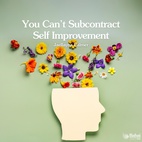The views expressed in our content reflect individual perspectives and do not represent the official views of the Baha'i Faith.
The function of prayer is not to influence God, but rather to change the nature of the one who prays. – Kierkegaard
Recently Psychology Today magazine published a fascinating study about the power of prayer to change personality. The article focused, not on subjective beliefs, but instead on the results of several different scientific studies that measured the impact of prayer on the actual behaviors of various groups of people. The author—Clay Routledge, a North Dakota University professor—listed five scientifically-supported benefits of prayer:
- Prayer improves self-control
- Prayer makes you more forgiving of others
- Prayer increases trust and unity
- Prayer can offset the negative health effects of stress
And most surprisingly, at least to me:
5. Prayer makes you a nicer person.
How? Routledge explained that researchers learned: “having people pray for those in need reduced the amount of aggression they expressed following an anger-inducing experience. In other words, prayer helps you not lose your cool.”
Apparently, the calmative effect of prayer for others not only improves our self-control and reduces the expression of anger, but has longer-lasting effects on each person’s character, as well:
Recent research indicates that prayer can help you get more out of your “self-control muscle.” Research participants who said a prayer prior to a mentally exhausting task were better able to exercise self-control following that task. In addition, other studies demonstrate the prayer reduces alcohol consumption, which may reflect the exercise of self-control. Findings such as these suggest that prayer has an energizing effect. – Routledge, Psychology Today, 23 April 2014.
Studies like this one show us that prayer can have measurable benefits, not just for the individual but for society in general.
Prayer, of course, has a profound paradox embedded in it. Supplicating God for help means recognizing the existence of a higher power. In order to gain more self-control and become a calmer, nicer person you must recognize that higher power and, in doing so, relinquish some sense of complete control over your own life. That deep realization—admitting your own powerlessness over the course of events, and recognizing the ultimate power of a Supreme Being—lies at the heart of this short Baha’i prayer:
I bear witness, O my God, that Thou hast created me to know Thee and to worship Thee. I testify, at this moment, to my powerlessness and to Thy might, to my poverty and to Thy wealth. There is none other God but Thee, the Help in Peril, the Self-Subsisting. – Baha’u’llah, Baha’i Prayers, p. 3.
This prayer, one of three that Baha’is can choose from to say every day as a part of their spiritual practice, emphasizes “my powerlessness and Thy might”—the explicit recognition of the creation and the Creator.
Once a person has that recognition experience, and understands their role as part of creation, it does often lead to increasing levels of kindness toward others. Prayer humbles us. We learn that we do not control everything or own the universe, that we merely take part in the ceaseless flow of life. We acknowledge our dependence on the mercy and good-pleasure of a much greater intelligence. We start to see ourselves as part of a unified whole, rather than as completely autonomous individuals, unrelated to the larger community of all living things.
So yes, the research shows that a regular practice of daily prayer can actually make you a nicer, kinder, gentler person. Give it a try, and you’ll see that prayer can have profound and long-lasting effects on your outlook, your personality, your mind and your soul:
O Thou compassionate Lord, Thou Who art generous and able! We are servants of Thine sheltered beneath Thy providence. Cast Thy glance of favor upon us. Give light to our eyes, hearing to our ears, and understanding and love to our hearts. Render our souls joyous and happy through Thy glad tidings. O Lord! Point out to us the pathway of Thy kingdom and resuscitate all of us through the breaths of the Holy Spirit. Bestow upon us life everlasting and confer upon us never-ending honor. Unify mankind and illumine the world of humanity. May we all follow Thy pathway, long for Thy good pleasure and seek the mysteries of Thy kingdom. O God! Unite us and connect our hearts with Thy indissoluble bond. Verily, Thou art the Giver, Thou art the Kind One and Thou art the Almighty. – Abdu’l-Baha, Baha’i Prayers, p. 100.

















Comments
Sign in or create an account
Continue with Facebookor